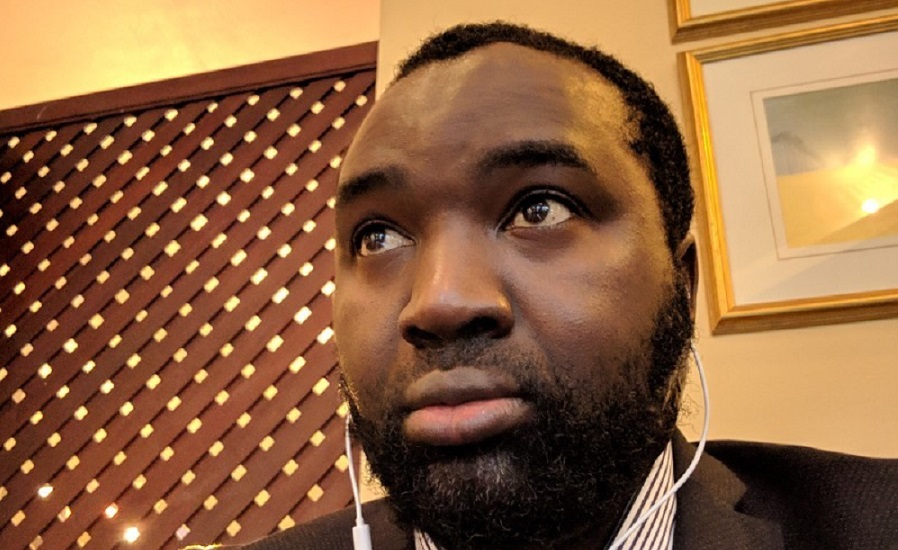Toffene Kama has advised, launched, operated many startups, with experience telling him that funding was a major roadblock for entrepreneurs. So now he is helping to address that, as investment principal at Mercy Corps Ventures.
Passionate about technology and its transformative role in Africa, Kama started his career in telecoms, leading the product and market development efforts for payment and billing platforms Alcatel and Redknee, and serving as head of mobile financials service for Millicom in Africa.
In between, he launched two startups – Willstream, a token-based remittance platform for the diaspora, and more recently Eywa Miles, a mass-mobility dispatching platform in partnership with Mastercard in East Africa.
“After years working with global platforms, I realised that the technology solutions we turn to, in order to level up our most critical challenges in the continent, were designed primarily for formal economies,” he told Disrupt Africa.
“From governments to multinational firms, huge efforts and resources are invested in projects with high impact expectations, only to plateau and get replaced a few years later by the sprawling informal sector. I moved back to Africa and embraced entrepreneurship to locally design and build ground-up technology for the most painful problems faced by our communities.”
To Kama, the next major roadblock appeared to be funding.
“I wanted to bring that ground experience on the investing side, so that the younger generation of founders get a chance to launch and grow, without the errors we made, or barriers we faced,” he said.
Mercy Corps Ventures was founded in 2015 as the impact investing arm of global development agency Mercy Corps. Kama said this gives it the opportunity to leverage the reach and market expertise of Mercy Corps networks in more than 40 countries, while the VC arm invests in high-impact enterprises in emerging markets, from seed to scale.
“We do this through capital, pre- and post-investment support, piloting new real-world use cases for cutting edge technologies such as crypto and blockchain, generating insights, and rigorous impact management. By going beyond capital alone, we work to advance the entire innovation ecosystem,” he said.
Mercy Corps Ventures’ primary vehicle is an evergreen fund, which Kama said gives it an “incredible ability” to provide patient, risk-tolerant capital to high-impact enterprises solving some of the world’s most challenging problems.
“We are honoured to have a stellar set of diverse backers from high networth individuals, foundations, crypto protocols, leading public financial institutions, and of course the support of one of the most active and innovative NGOs globally, Mercy Corps,” he said.
To date, Mercy Corps has invested in 36 early-stage ventures, which together have raised over US$355 million in follow-on capital, while it also has two recorded exits.
“Our portfolio centres around solutions that build climate resilience and financial resilience, so that those living in frontier markets can withstand disruption and plan for the future,” said Kama.
“We have been thrilled to be part of the growth journey for an exceptional portfolio of startups in crypto, insurtech, inclusive fintech, agtech, logistics, and climate adaptation, including Wasoko, Goldfinch, Ejara, Pula, Liftit, and everything in between.”
Mercy Corps Ventures typically invests at pre-seed or seed stage, and in startups that have an MVP in market, across Sub Saharan Africa, Latin America and South East Asia.
“From both a commercial and impact perspective, we are looking for startups that have a pathway to expand across a region and reach 100,000s of people,” said Kama.
“Within Sub-Saharan Africa, we cover the main hubs such as Nigeria, Kenya, and South-Africa, with special efforts in Francophone Africa – an interesting region where startups can scale easily once tested in an initial market.”
Kama himself is based in Dakar, Senegal, so as to be closer to the region, and says it is crucial for companies like Mercy Corps Ventures to provide more than just investment capital.
“It’s crucial that we go beyond the term sheet and support companies to scale sustainably. We provide a suite of support services including pre- and post-investment support that covers areas from finance systems, impact and customer measurement, market analysis, and unit economics,” he said.
“We fuel nascent solutions by working with companies to pilot the application of emerging decentralised finance tools to provide reliable and direct access to financial services for un/underbanked populations. These pilots are crucial for evidencing real world use cases in blockchain, digital assets, and cryptocurrencies, and their potential to accelerate global financial inclusion.”
It also partakes in gender lens investing.
“The venture capital system is set up to miss or exclude female founders, so to build an equitable world as impact investors, we know we need to change this. We’re integrating a gender lens investing approach into our investment lifecycle, from targeting female-led enterprises for investment, to due diligence on the gender impact of a venture’s product or service,” said Kama.
For 2022 and into 2023, Mercy Corps will focus on investing in founders developing solutions to address climate disruption and financial exclusion — solutions in inclusive fintech, adapted agriculture, climate-smart communities, resilient food systems, sustainable supply chains, crypto, DeFi, and Web3.
“We’re rigorously assessing new frontiers of climate solutions and DeFi to identify market and impact opportunities underappreciated by other investors and expanding our portfolio of pilots,” said Kama.


